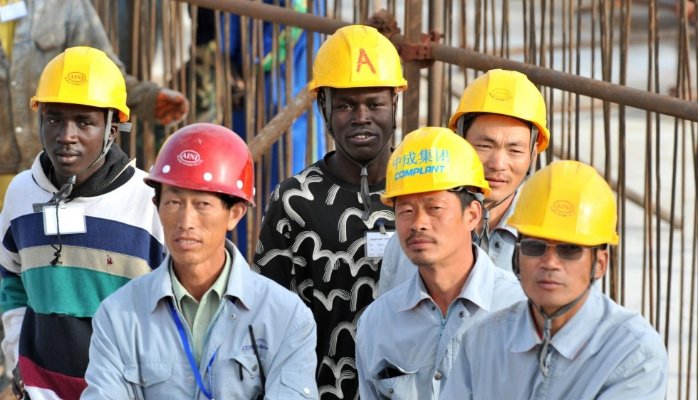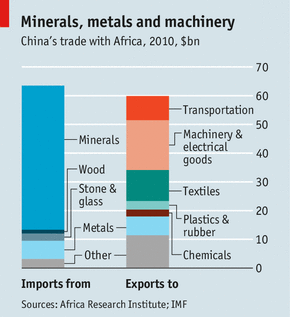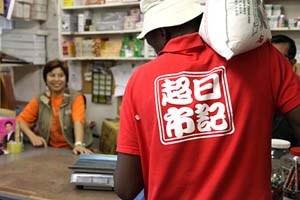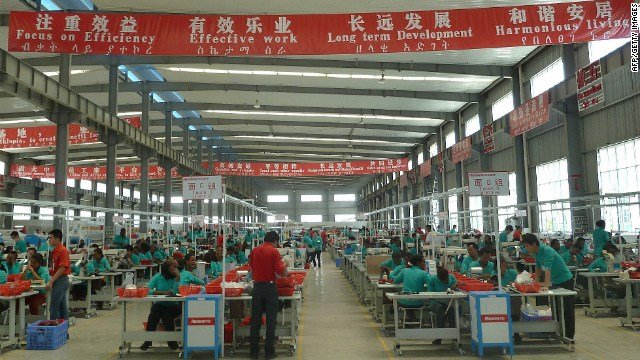Insider Tips On How African Entrepreneurs Should Do Business With China !!!

I would like to share some insights with you about doing business with China not only buying from China, but also exporting to China.
You may know that almost 80% of Chinese imports from Africa are mineral products. In this regard, China is Africa’s top business partner with trade exceeding $166 billion. But it is not all about minerals. As you can see in the chart below, China’s exports to Africa span over a wider range of sectors.

However, many African SMEs are hesitating to step into business with China and those doing business with the Chinese already are not rarely facing challenges and business risk. This has several reasons, such as a difference of culture and handling of things, misunderstandings due to language barriers, low product quality and so on.
This is why today, I want to provide you with some first-hand lessons and some business advice on how to engage successfully with Chinese business partners:
- How to get the quality you want
There is still the perception with many that everything that comes from China is cheap and of bad quality. The truth is that China has long moved on from this and you can get a big variety of quality for the products you want, but here it comes: for different prices.
China can be cheap, but not all products are of bad quality, otherwise international brands would stop producing and buying from China. So if you are willing to pay more, you will get better quality. When you are purchasing from China you first need to be very clear what quality you are looking to get for your products. This is so important, because here is what usually happens next:
The first question Chinese suppliers may ask is where you are from and where the products are going to.
You say for example: Nigeria….or Tanzania.
These suppliers have shipped a lot to Africa and done business with Africans and their experience tells them that selling to African clients means they have to focus on the price – basically this is the request by most buyers. So they will automatically quote you a cheap price, and you may be happy about that, but usually that also means low quality.
I hope you understand that this first step is to some extent really in your hands: If you do care about the quality of your product, make sure you communicate this clearly with the Chinese suppliers. It is important that you clarify exactly what you are getting and for how much before going ahead with your order. If necessary, get a sample sent beforehand.
- Be aware of the risks
Doing business with China can be easy if you have found a professional and reliable supplier who got all required business documents and certificates, product of decent quality and good price. He also needs to be a good freight forwarder shipping your goods out as agreed. You can also ask your supplier to handle the entire shipping order for you – CIF & CNF & DAP –, added freight cost.
But there are risks you should be aware of, and even experienced traders run into them. Here are the main issues I have come across:
Be sure about your requirements and communicate them as clear as possible. Language barriers are the the number one cause for misunderstandings. I have seen people using Google translation for a specific product they are looking for, but this is not sufficient. You have to know what you are buying. Ask for detailed specifications in writing, ask for images, request product samples to be sent to you if possible and so on.Be aware of what Chinese supplier mean when they answer’ “Yes we can, Yes we have it…”. Make sure that their “yes” really means a clear “Yes we are able to do it and we will do it as requested”. This may not look like a big issue, but this lack of clarity can cause disappointments at some points.Check your supplier’s information, are they trustworthy ?
*If you are still in doubting, send a third trusted party to visit them, or make some changes to your order to see if they quickly give up or if they deal with your request professionally.
To avoid the risks get someone in China who can give you advice or help you to follow up with your suppliers in case challenges occur. In case you want to find out more about your supplier, the third party can contact them to let them know you have someone locally to act on your behalf. A third party will ensure better cooperation between you and your supplier. If you have a representative or business partner in China who takes on that role, it would be worth a lot. But there are other ways, you can for example ask your international freight forwarder in China or your inspection company to take on that role (get in touch with me via LinkedIn or by mail: [email protected])
3 You need to face the truth first before getting ready to sell to China
 First of all let me get something of my chest, and I hope as Africans we will tackle this very soon: “How many African countries really have done market research regarding consumption patterns in global markets, in order to find out what leading companies and consumers in prosperous countries outside are buying, whom they are buying from, and in which amounts, so African nations can use the information, to formulate export strategies and even to position their respective countries to address a niche ?”
First of all let me get something of my chest, and I hope as Africans we will tackle this very soon: “How many African countries really have done market research regarding consumption patterns in global markets, in order to find out what leading companies and consumers in prosperous countries outside are buying, whom they are buying from, and in which amounts, so African nations can use the information, to formulate export strategies and even to position their respective countries to address a niche ?”
The answer is: not many.
Most African countries and businesses are still functioning under a colonialist trade concept: They export raw material and then they import end products. I don’t need to tell you how many raw products are leaving Africa just to return back to Africa after having been manufactured overseas for useful consumption!
Africa needs end products, but it is also time that it adds value by selling end products itself, so our continent can get more benefit out of it! I was surprised after several recent trips to West Africa and other parts to see how much agricultural produce for example gets wasted because of lack of the most basic manufactures. There are tons of natural rotten fruits laying on the ground just because of lack of the most simple manufacturing techniques such as juice making for example.
African SMEs can benefit a lot from this gap.
As the export tradition is not yet envisioned by local African SMEs, we are observing more and more foreign companies getting into the markets, producing in Africa and then focusing in export to their countries of origin. In the meanwhile most African SMEs are only focusing on import.
To the bottom line is that African SMEs do know how to sell locally, but do face troubles on selling internationally. You don’t need to just buy from China, you can also sell to China!
From my sourcing experience, however, I have noticed that finding suppliers in Africa can be a real hassle. Although you can find suppliers you then often face troubles when buying and shipping your goods out. In short, it is not easy to find reliable, professional, certified suppliers in Africa. Of course, for one, local administration tasks can be difficult: When overseas buyers ask for CIF from Africa to their destination, this proves to be a difficult task for African companies to get this. But the real problem in my opinion is the lacking knowledge among African manufacturers, traders, and entrepreneurs, how to do export operations efficiently and professionally.
We can now understand why numerous overseas companies finally decide to step into Africa to produce and handle their export tasks themselves.
International marketing is another area you need to get a grip on, if you want to start selling to China (or elsewhere for that matter). While we know international sourcing websites like Alibaba.com, or madeinchina.com (to only list two of those in China), it’s really hard – except from some country directories – to find and engage with suppliers from Africa.

Thanks for reading. I will be pleased to read your comments and learn more from you as well. This article is an article originally published in Africa Business Jumpstart Website: http://africajumpstart.com/insider-tips-on-how-african-entrepreneurs-should-do-business-with-china-3-is-a-wakeup-call/ .
Nice post! I will follow you from now on. +UP
Congratulations @weareunity! You have received a personal award!
Click on the badge to view your Board of Honor.
Do not miss the last post from @steemitboard!
Participate in the SteemitBoard World Cup Contest!
Collect World Cup badges and win free SBD
Support the Gold Sponsors of the contest: @good-karma and @lukestokes
Congratulations @weareunity! You received a personal award!
You can view your badges on your Steem Board and compare to others on the Steem Ranking
Vote for @Steemitboard as a witness to get one more award and increased upvotes!